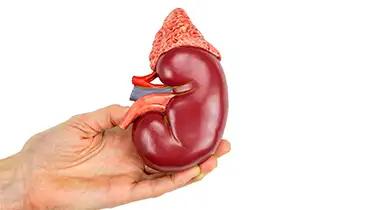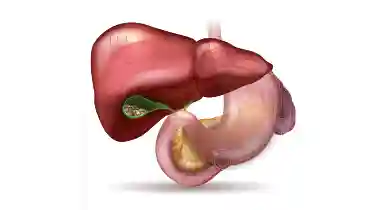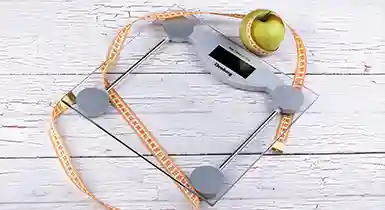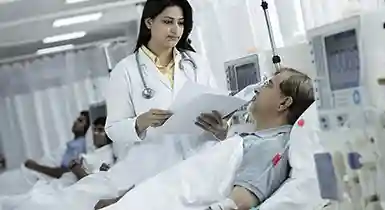National Nutrition Week: 1 September to 7 September 2024

National Nutrition Week is celebrated each year from 1st September to the 7th September to aware the people about important tips of their health and well-being. “The role of your diet in life plays the most important role in promotion of health and wellbeing of a human being. A good and balanced diet habit improves the quality of life, as poor diet might cause morbidity and illnesses.” Purpose of the Week: This year the theme is feeding smart right from start. The government has created a program to impart proper information and build awareness through Seminars and also Camps to give every Child and Citizen of India on how children can benefit from proper nutritious diet right from birth. The objective of the National Nutrition Week is to enhance the nutritional practice awareness among people of the community through the adoptable training, timely education, seminars, different competitions, road shows and many other campaigns and to make a healthy Nation. As part of this initiative with our experienced dietician and medical fraternity we support the Objectives of the National Nutrition Week Celebration. History Of National Nutrition Week The American Diabetes Association (ADA) organized the inaugural National Nutrition Week campaign in 1973. The occasion was publicized through radio service announcements, TV countdowns, news releases, and even a presidential declaration. The subject of all the adverts and reminders was “Invest in Yourself—Buy Nutrition.” Following are the endeavours we will be following to achieve this: Diet Services at Wockhardt Hospitals: Dietetics is the scientific knowledge of establishing the necessary food requirements for individuals, founded on the principles of nutrition. It plays an important role in the treatment of patient and improving their health condition in a hospital. At Wockhardt hospitals out diet and nutrition department play a vital role in the providing nutritional care to patients in various disease states and conditions. Our Weight Loss Program: At Wockhardt Hospitals our Endocrinology department, Diabetes and Weight Management Centre at Wockhardt Hospitals treat various endocrine disorders .The division has an integrated multi-disciplinary model for providing comprehensive management of the entire range of endocrine conditions. Wockhardt Hospitals also has unique weight management centre. Together with India’s only physician certified by the American Board of Obesity Medicine, our centre focuses on medical management of overweight and obesity conditions. We have a multidisciplinary team consisting of physicians, dieticians, counsellors and exercise physiologists. The protocol delivers an international evidence-based management for safe and effective weight loss. The program also works in close collaboration with surgical approaches for weight management for those patients that need it, as the Hospital is also a Centre of Excellence for Metabolic and Bariatric Surgery To know about how you can improve your diet and understand its supportive role in treating various conditions, please contact Wockhardt Hospital. About Wockhardt Hospitals: A 50-year-old legacy and tradition of caring is what Wockhardt Hospitals stands on. Wockhardt Hospitals has been proactive in bringing innovative nurturing for better health. Wockhardt Hospitals has become a leading health service provider with its strong presence in the western parts of the country i.e. Mumbai, Nagpur Rajkot, Nasik and Surat. This group of 8 hospitals fulfils the need of the community in its chosen field of super specialty like Cardiology, Orthopaedics, Neurology, Gastroenterology, Urology, Aesthetics and Minimal Access Surgery. Wockhardt Hospitals has state-of-the-art infrastructure. Our prime objective is patient safety and quality of care at all levels. The guiding philosophy is to serve and enrich the Quality of Life of patients and to make life win. Wockhardt Hospitals follow process driven quality systems that adhere to international standards of clinical care, safe environment, infection control and respect for patient rights & privacy. Many of the Wockhardt group of hospitals has accreditation of the NABH (National Accreditation Board of Hospitals &Healthcare), the highest and the most stringent quality standards institution in India and the National authority in healthcare accreditation. To achieve high degree of clinical excellence, we have entered into strategic alliances with Partners Medical International, USA, whereby Wockhardt Hospitals has access to Harvard’s expertise and experience in the fields of surgery and other Medicare services. Wockhardt group of hospitals in India is a preferred destination for patients from Europe, USA, Africa, Middle East and South Asia.
World Spinal Cord Injury Day: 5 September, 2024

World Spinal Cord Injury Day will take place on 5 September, aims to increase awareness throughout the community. Spinal cord injury is one of the most common causes of disability incapacitating an individual to lead a normal life. This global day is an initiative of the International Spinal Cord Society (ISCoS) to build awareness and promote the inclusion of disability throughout the world. The spinal cord is a long, fragile tube-like structure that begins at the end of the brain stem and continues down almost to the bottom of the spine. It consists of nerves that carry incoming and outgoing messages between the brain and the rest of the body. The human spinal cord acts as our entire center for reflexes. It is composed of 26 individual backbones called vertebrae. The vertebrae are separated by disks made of cartilage, which act as cushions, reducing the forces generated by movements such as walking and jumping. Spinal Injury is caused due to direct injury to the cord itself or indirect damage from disease of the nearby bones, tissues, or blood vessels can lead to severe disability which includes severe consequences, like loss of voluntary movement and loss of sensations. Other Symptoms Include: Although some patients quickly recover after injury, most patients with substantial cord damage have permanent symptoms. According to the World Health Organization (WHO) annually, around 250,000 to 500,000 people suffer a spinal cord injury (SCI) globally and the majority of the causes are preventable like road traffic crashes, falls, or violence. Some Causes of Spinal Injury Include: Spinal Fractures or Dislocation of a Vertebra: Such fractures can cause bone fragments to pinch and damage the spinal nerves or spinal cord. Generally, spinal fractures occur from car accidents, falls, gunshots, or sports. Injuries can range from mild ligament and muscle strains to fractures and dislocations of the bony vertebrae, to debilitating spinal cord damage. Pain, difficulty walking, and paralysis can occur. Many fractures heal with conservative treatment; however severe fractures may require surgery to realign the bones. Spinal Cord Compression: Spinal cord compression occurs when a mass places pressure on the cord. A mass can include a tumor or bone fragment. Compression can develop anywhere along the spinal cord from the neck to the lower spine. Some causes include certain degenerative diseases, such as arthritis, a ruptured disk, Injury to the spinal cord or the area around the cord can lead to swelling can lead to compression. Spinal Cord Can Indirectly Also Result in Spinal Injury Disease Due To: The Type of Spinal Cord Injury Can Be Incomplete and Complete: Complete spinal cord injuries: By contrast, complete injuries occur when the spinal cord is fully severed, eliminating function. Complications of Spinal Cord Injury: Damage can be either temporary or permanent. These changes translate into loss of muscle function, sensation, or autonomic function in parts of the body served by the spinal cord below the level of the lesion. Treatment of Spinal Cord Injury Includes: Spinal Cord Injury Surgery is Needed in the Following Cases: Physiotherapy Management and Rehabilitation of Spinal Cord Injury Include the Following: Goals of Rehabilitation include: This Generally Involves an Interdisciplinary Team to Contribute to the Rehab Process of the Patient Spinal cord injury recovery occurs within the first six months after injury. Any remaining loss of function present after 12 months is much more likely to become permanent. Maintaining a positive outlook is extremely important for patients with spinal cord injury patients. At Wockhardt Hospitals: Spine Surgery is a surgical speciality that is dedicated to the restoration and preservation of spine functions by managing various spinal disorders. It includes both non-operative and complex operative treatment modalities. At a glance, Spine Surgery in India is a combination of orthopedic and neurosurgical surgery. The speciality comprises a gamut of spinal surgeries with an aim to relieve pain, stabilize of spine, and decompress of spinal cord/nerves. At Wockhardt Hospitals Spine Services Department is running A MULTI DISCIPLIANRY program in the country by a team of dedicated and highly experienced spine surgeons, neurophysicians neurosurgeons pain block experts, physiotherapists, and rehabilitation experts. The specialty has one of the best state-of-the-art equipment, world-class infrastructure, and diagnostic services in achieving the right diagnosis and bringing about optimal care. The Spine surgery services department at Wockhardt Hospitals is well complimented by an excellent physical therapy and rehabilitation department. To understand more about the condition please contact our centres at Wockhardt Hospitals. Wockhardt Hospitals have been regarded as centers of excellence in the field of neurosurgery including spine, with facilities in North Mumbai (Mira road), South Mumbai (Mumbai Central), Navi Mumbai (Vashi), Nagpur, Nasik, Rajkot, and Surat. Wockhardt Hospitals has having state-of-the-art infrastructure whose prime objective is patient safety first and quality of care at the core of its strategy. The guiding philosophy is to serve and enrich the Quality of Life of patients and to make life win.
World Organ Donation Day: 13 August, 2024

The Organ Donation Day campaign, which is celebrated every year at August 13th, provides a great opportunity in everyone’s life to come ahead and pledge to donate their precious organs. At Wockhardt Hospital we support this imitative and hope that in doing further spread our ethos in making life win. Approximately 5 lakh people across the nation die each year. Objectives of Organ Donation Day What is Organ Donation? Organ Donation is the gift of an organ to a person who needs a transplant to improve his condition and health status. It is a procedure in which a health organ (donor) is taken from an individual who is either living or deceased and is transplanted into a person whose respective orphan (recipient) is malfunctioning. Donated organs give the recipient the opportunity of a longer and better quality of life. Is it a Legal Procedure? Yes it is a legal procedure. It is governed by a transplant regulatory body and special acts laid down by authorities. All institutions conducting transplants have to be registered under the government and follow rules and regulations. Which Organs (For Transplant Surgery ) Can Be Donated? What Are the Different Types of Organ Donation? When Are Organs Removed After Death? Organs must be removed as soon as possible after the determination of brain death, while circulation is being maintained artificially. Tissues may be removed within 12 to 24 hours. What is Brain Death? (Cadaver Transplant) Brain death results from a severe, irreversible injury to the brain. All areas of brain are damaged and no longer function due to which a person cannot sustain his/her own life, but vital body functions may be maintained by an artificial support system. This maintains circulation to vital organs long enough to facilitate organ donation. People who experience brain death also donate tissues. Which Organs Can Be Donated After Brain Death? Vital Organs like heart, liver, kidneys, intestines, lungs, and pancreas can be donated only in case of ‘brain death’. However other tissues like corneas, heart valves, skin, bones etc. can be donated only in case of natural death Can a Donor Donate Organs After a Cardiac Death? No. Cardiac death results when the heart and breathing cease to function. All organs and tissues in the body suffer from lack of oxygen, circulation and die. People who have a cardiac death cannot be organ donors however they can donate tissues after death. Who Certifies That a Patient is Brain Dead? The Government has specified that a panel of doctors will certify brain death and not a single doctor. The panel consists of: Who Authorises Organ Donation? A recipient list (waiting list) for receiving organs is maintained in a register with the Zonal Transplant Coordination Centre) who is responsible for allotting the organs. In India Why is the Family So Important in Case of Organ Donation? Is Organ Donation Safe? All potential donors are screened for ruling out transmitted diseases such as HIV AND HEPATITIS. Can I donate if I have a medical condition? The medical condition will be assessed at the time of organ donation to see if you are fit candidate for the same. Are There Any Criteria for Evaluating Donors? Yes certain tests like blood group, immunological status and medical taken. The donors tissue matching and compatibility with recipient is vital consideration for transplant surgery. Why is Family Support Important in Pledging Your Organs? It is important to discuss your decision with family or next of kin. This is because in case of an emergency or an untoward incident, your family will be the first to be contacted. Only after seeking their permission can the doctors go ahead with retrieving your organs. If your family is aware of your decision, your wishes will be carried out the way you would have liked. In scenarios where the families are not aware and need to be counselled on the wishes of their deceased relative, a lot of precious time is lost and sometimes the opportunity to donate is gone. In Organ donation, time is of prime importance. It is essential for the organs or tissues to be removed as When is Consent Required for a Minor? If you are less than 18 years old, then your parents’ consent is required for organ donation. So if you want to become a donor, it’s important to tell them that you wish to donate. Children too are in need of organ transplants, and they usually need organs smaller than those an adult can provide. How Can I Pledge My Organs? You can pledge by simply filling up an organ donation card, Carry it around with you and mention personal details and family member who is aware of your decision as consent to go ahead with the procedure. You will also need to specify the organ you which to donate to save a life.
Raising Awareness Towards Viral Hepatitis

On 28TH July we celebrate World Hepatitis Day. The theme this year is Eliminate Hepatitis. Goal of this day is to help countries who are facing major health issues due to hepatitis and asses the need to eliminate viral hepatitis. The program is structured to remove hepatitis B and C in the next 13 years. All health community globally responded by launching NO hep, the first ever global movement to eradicate viral hepatitis by 2030. Hepatitis is a general term referring to inflammation of the liver. It may result from various causes, due to viral, bacterial, fungal, and parasitic organisms. Non-infectious causes could be due to alcohol, poisonous substances, and autoimmune hepatitis. Viral hepatitis is one of the major causes of liver disease. Viruses that primarily attack the liver are called hepatitis viruses. There are several types of hepatitis viruses including types A, B, C, D, E, and possibly G. Types A, B, and C are the most common. All hepatitis viruses can cause acute hepatitis and liver disease. Causative Agents of Hepatitis: Signs and Symptoms of Hepatitis Diagnosis of Tests to Detect Hepatitis: Treatment of Hepatitis: Measures to Prevent Hepatitis Complications of Hepatitis: Other Causes of Hepatitis Include: Vaccination for Hepatitis: Hepatitis B Vaccine is Recommended: The CDC recommends it for all babies, who should get their first dose as new-borns. Hepatitis Vaccination A: The CDC recommends that all children between ages 12 months and 23 months get this vaccine. The following people are also at risk for the disease and should be vaccinated: In case you are experiencing any signs and symptoms of viral hepatitis, please visit Wockhardt Hospitals. Wockhardt Hospitals, a chain of tertiary care super-specialty hospitals has more than 25 years of experience in the creation and management of Super Specialty Hospitals in India. We are a premiere hospital in the country specializing in the treatment of digestive disorders. We provide comprehensive digestive care to our patients. The digestive care centre at Wockhardt Hospitals makes it a centre for excellence with our clinical expertise, to treat such conditions affecting the digestive system. For further information or any gastroenterology services or liver transplant related query visit our experts at Wockhardt Hospitals. Wockhardt Hospitals is regarded as a centre of excellence the healthcare domain, having facilities in North Mumbai (Mira road), South Mumbai (Mumbai Central), Navi Mumbai (Vashi), Nagpur, Nasik, Rajkot and Surat. Wockhardt Hospitals has state-of-the-art infrastructure. Our prime objective is patient safety and quality of care at all levels. The guiding philosophy is to serve and enrich the Quality of Life of patients and to make life win.
What Causes Gallstones?: Symptoms & Treatment

Gallstones are formed from bile cholesterol and bilirubin in the gallbladder. The gallbladder is a small saclike organ in the upper right part of the abdomen, just below the on the right side. It forms part of the biliary system, which includes the liver and the pancreas. The gall bladder stores bile and digestive enzymes. Generally they don’t cause issues, however if there are many stone in gallbladder or they become large in size. Gallstones can cause the blockage of the bile duct which can cause inflammation and ultimately severe pain, infection, and organ damage due to gall bladder stones. There are two types of gallstones: These stones in the gall bladder can be either What Causes Gallstones? Gallstones Symptoms Most people with gallstones have no symptoms. The most common symptom is pain in the right upper part of the abdomen. The pain usually starts within 30 minutes after a fatty or greasy meal. The pain is usually severe, dull, and constant, it the pain can radiate to the right shoulder or back. Pain generally occurs at night and can cause a lot of discomfort. Other common symptoms of gallstones include the following nausea and vomiting, fever, indigestion, belching, bloating and jaundice. Gallstones Diagnosis Ultrasound is the best test to examine the gallbladder for stones. An alternative to ultrasound is an oral cholecystogram can be advised. Both ultrasound and OCG can detect gallstones in the gallbladder about 95% of the time. An X-ray is taken of the gallbladder after the patient swallows pills containing a safe, temporary dye. The dye helps the gallbladder and gallstones show up better on the X-ray. Other tests include: Gallstones Treatment Gall bladder stone removal: In case you are experiencing any of signs or symptoms related to GALL BALDDER stone and would like to know treatment of gall stones, gallbladder surgery, and removal of stones in gall bladder or would also like to know more details about digestive care disorders, please contact our centres at Wockhardt Hospitals. Wockhardt Hospitals is one of the countries premium hospitals that are focused on the prevention, diagnosis and treatment of digestive diseases and illnesses. Wockhardt Hospitals, a chain of tertiary care super-specialty hospitals has more than 25 years of experience in the creation and management of Super Specialty Hospitals in India. We are a premiere hospital in the country specializing in the treatment of digestive disorders. We provide comprehensive digestive care to our patients. Our Gastroenterology Surgery and Minimal Invasive Surgery Department at Wockhardt Hospitals are regarded, as one of the centres for excellence. Our clinical expertise and infrastructure support the treatment of health conditions, needing laparoscopic surgery or general surgery. For further information visit Digestive Care Speciality at Wockhardt Hospitals. Wockhardt Hospitals is regarded as a centre of excellence the healthcare domain, having facilities in North Mumbai (Mira road), South Mumbai (Mumbai Central), Nagpur, Nasik, and Rajkot. Wockhardt Hospitals has state-of-the-art infrastructure. Our prime objective is patient safety and quality of care at all levels. The guiding philosophy is to serve and enrich the Quality of Life of patients and to make life win. FAQs on Gallstones Q. What do gallstones look like? Gallstones may differ in appearance; they usually have a tiny, pebble-like form. The main component of cholesterol stones is hardened cholesterol, and they often have a yellow-green appearance. Pigment stones are composed of bilirubin and have a dark tint. The size of stones can vary significantly, ranging from minuscule to massive, like a golf ball. Q. Who is affected by gallstones? Although gallstones can afflict anybody, they are more frequent in women, overweight people over 40 and anyone with a family history of the condition. Pregnancy, fast weight reduction, and a high-fat diet are among other conditions that might raise the chance of gallstone development. Q. Which foods cause gallstones? Foods high in saturated fats and cholesterol, such as fatty meats, processed foods, full-fat dairy products, and fried foods, can cause gallstones to develop. Furthermore, eating sugary and refined carbs may raise your chance of gallstone development. Q. How do you get rid of gallstones? The most popular treatment for symptomatic gallstones is surgical removal of the gallbladder or Cholecystectomy. As an alternative, certain kinds of gallstones may be treated with medication like ursodeoxycholic acid. Gallstones can occasionally be removed from the bile channel using nonsurgical techniques like Endoscopic Retrograde CholangioPancreatography (ERCP).
What is Endoscopy?: Procedure and Types

An endoscopy is a diagnostic procedure that allows a gastroenterologist to look at the interior lining of the oesophagus, stomach, and the first part of small intestine through a thin, flexible viewing instrument called a flexible endoscope An upper endoscopy is used to diagnose and, sometimes, treat conditions that affect the upper part of your digestive system, including the oesophagus, stomach and beginning of the small intestine (duodenum). Indications for an Endoscopy A gastroenterologist may recommend an endoscopy procedure to Investigate digestive signs and symptoms, such as nausea, vomiting, abdominal pain, difficulty swallowing and gastrointestinal bleeding. Endoscopy is also used to collect tissue samples (biopsy) to test for diseases causing bleeding, inflammation, diarrhea or cancers of the digestive system. In the procedure for endoscopy a flexible endoscope special instruments can be passes through the endoscope to treat conditions in of digestive system, such as acidity, control of bleeding vessel or assistant in widening a narrow oesophagus due to strictures, removal off a polyp or a foreign object. Advances in gastrointestinal fibre-optic endoscopic technology have made endoscopy mandatory for gastrointestinal diagnosis, therapy, and endoscopy surgery. An endoscopy is sometimes combined with other procedures, such as an ultrasound to view organs. What is the Endoscopy Procedure? During an upper endoscopy process the patient will be asked to lie down on a table on his back or on his side. Sedation will be given for an anaesthetic will be sprayed in the mouth to numb the throat. The flexible endoscope which is a long, flexible tube (endoscope) is inserted in the mouth. The doctor will ask the patient to swallow as the flexible endoscope scope passes down the throat and it then enters down your oesophagus. A tiny camera at the tip of the endoscope transmits images to a video monitor in the exam room. In the endoscopy procedure a gastroenterologist watches the images on a monitor to look for abnormalities in your upper digestive tract. Air pressure may be fed into the oesophagus to inflate the digestive tract which allows the endoscope to move freely, during the endoscopy procedure. In cases of a surgical endoscope special surgical instruments are passes through the endoscope to collect a tissue sample or remove a polyp. What is a Fluoroscopy? Fluoroscopy is a diagnostic procedure used to view moving body structures .A continuous X-ray beam is passed through the body p being examined. . It enables a radiologist enables to view body skeletal, digestive, urinary, respiratory, and reproductive systems. Fluoroscopy is used as an imaging procedure to evaluate specific areas of the body, including the bones, muscles, and joints, as well as solid organs, such as the heart, lung, or kidneys. Some other procedures where fluoroscopy is used as a supportive imaging tool is in fluoroscopy is as barium X-rays, cardiac catheterization, arthrography to visualize joints of a joint , lumbar puncture, placement of intravenous (IV) catheters), intravenous pyelogram, hysterosalpingogram, and biopsies. What is the Procedure of Fluoroscopy? During the Fluoroscopy procedure a contrast substance (dye) is injected through an intravenous (IV) line in the hand or arm swallowed, or enema. The patient is positioned on the X-ray table. Depending on the type of procedure, a specific body part will viewed. The patient will be asked to hold his breath at intervals while the fluoroscopy is being performed. A special X-ray machine will be used to produce the fluoroscopic images of the body structure being examined or treated What is Endoscopic Retrograde Cholangiopancreatography (ERCP?) Endoscopic retrograde cholangiopancreatography (ERCP) is a medical and diagnostic procedure that combines the use of endoscopy and fluoroscopy to diagnose and treat certain problems of the biliary or pancreatic ductal systems. . The most common condition for advising an ERCP medical procedure is abdominal pain, weight loss, jaundice (yellowing of the skin), or an ultrasound or CT scan that shows stones or a mass in the pancreatic biliary duct system. Diagnosis of Bile duct stones can be diagnosed and removed with an ERCP procedure. Stretch out narrow segments in bile ducts due to strictures. Diagnosis of tumors can be the diagnosis. ERCP can also be done before or after gallbladder surgery. If you have any queries regarding any of these procedures or indications, please contact our centers at Wockhardt Hospitals. Wockhardt Hospitals, a chain of tertiary care super-specialty hospitals has more than 25 years of experience in the creation and management of Super Specialty Hospitals in India. We are a premiere hospital in the country specializing in the treatment of digestive disorders. We provide comprehensive digestive care to our patients. The digestive care centre at Wockhardt Hospitals makes it a centre for excellence with our clinical expertise, to treat such conditions affecting the digestive system. For further information or any gastroenterology medical related query visit our experts at Wockhardt Hospitals. Wockhardt Hospitals is regarded as a centre of excellence the healthcare domain, having facilities in North Mumbai (Mira road), South Mumbai (Mumbai Central), Navi Mumbai (Vashi), Nagpur, Nasik, Rajkot and Surat. Wockhardt Hospitals has state-of-the-art infrastructure. Our prime objective is patient safety and quality of care at all levels. The guiding philosophy is to serve and enrich the Quality of Life of patients and to make life win. Types of Endoscopy There are several types of endoscopic procedures, all functioning in the same basic way. Differences in the technicalities of the process include the specific body parts the doctor examines and the entry point for the scope. Following are the types of endoscopy procedures: FAQs on Endoscopy Q. Why do I need an endoscopy? Endoscopies are minimally invasive procedures, typically recommended to identify the underlying causes of digestive disorders and symptoms, as well as to treat specific conditions, such as acid reflux or persistent heartburn. Q. What does the endoscopy test for? During an endoscopy, tissue samples (biopsies) may be taken to check for illnesses causing symptoms like diarrhea, bleeding, anemia, or inflammation. It can also identify certain upper gastrointestinal malignancies. Q. How long does endoscopy take? Depending on the type
Appendicitis Symptoms, Treatment and Surgery

Appendicitis is an inflammation of the appendix. The appendix is part of the large intestine located at the right lower, part. It looks like a small finger-like organ. The inside of the appendix forms a small sac that usually opens into the large intestine. When the appendix is blocked it causes an inflammatory reaction and predisposes it to bacterial growth and infection. Appendicitis is caused because of such blockages, due to hard rock-like stool; inflammation of lymph nodes in the intestines, or infections likes parasites. Generally the first symptom of appendicitis is usually a mild fever and pain around naval area. The pain in appendicitis usually worsens in and moves to the lower right side of the stomach and can associated with Vomiting, nausea, and loss of appetite. If the appendicitis is not treated in time (removal of appendix) the infected appendix, can burst and spread bacteria. The complications of appendicitis that can arise from a ruptured appendix which can give rise to an abscess (an infection of pus) that can spread throughout the abdomen, causing peritonitis, which can be life threatening. Treatment for appendicitis Before the appendectomy procedure diagnostic investigations will be carries out such as : Appendectomy Procedure is the standard treatment for appendicitis: Removal of the appendix is generally the mode of line of treatment for appendicitis. This operation is known as an appendectomy or appendectomy (appendix removal). This is because it’s considered safer to remove the appendix than run the risk of the appendix bursting. Appendectomy surgery: Appendicitis surgery is carried out under general anaesthetic using either a keyhole or open appendix surgery technique for appendectomy procedure. Antibiotics are given before an appendectomy to cover any chances of infections. Keyhole surgery (laparoscopy) is usually the preferred method of removal of the appendix (Appendicitis operation), because the recovery tends to be quicker than with open surgery. The appendectomy procedure through this technique, involves making 4-inch incision small incisions on the abdomen. A laparoscope which is a small tube containing a light source and a camera is inserted through the abdomen, which relays images of the inside of the abdomen to a television monitor. During this type of appendicitis operation gas is pumped through to inflate the abdominal cavity which allows the surgeon to see the appendix more clearly and small instruments are inserted to remove the appendix. Once the appendix has been removed in the appendicitis operation, the incisions are closed with dissolvable stitches. One of the main advantages of keyhole surgery is the recovery time is short and most people can leave hospital is a few days. In some situations keyhole surgery may not be recommended and open surgery is performed instead for removal of appendix- Appendectomy: Complications of Appendectomy please seek medical attention: In case you are experiencing any of signs or symptoms related to appendicitis or would like to know more details about digestive care disorders, please contact our centres at Wockhardt Hospitals. Wockhardt Hospitals is one of the countries premium hospitals that are focused on the prevention, diagnosis and treatment of digestive diseases and illnesses. Wockhardt Hospitals, a chain of tertiary care super-specialty hospitals has more than 25 years of experience in the creation and management of Super Specialty Hospitals in India. We are a premiere hospital in the country specializing in the treatment of digestive disorders. We provide comprehensive digestive care to our patients. Our Gastroenterology Surgery and Minimal Invasive Surgery Department at Wockhardt Hospitals is regarded, as one of the centre’s for excellence. Our clinical expertise and infrastructure support the treatment of health conditions, needing laparoscopic surgery or general surgery. For further information visit Digestive Care Speciality at Wockhardt Hospitals. Wockhardt Hospitals is regarded as a centre of excellence the healthcare domain, having facilities in North Mumbai (Mira road), South Mumbai (Mumbai Central), Navi Mumbai (Vashi), Nagpur, Nasik, Rajkot and Surat. Wockhardt Hospitals has state-of-the-art infrastructure. Our prime objective is patient safety and quality of care at all levels. The guiding philosophy is to serve and enrich the Quality of Life of patients and to make life win.
Weight Management Tips & Strategy

Some idea on diet plan to how to lose weight (Weight Management): Reduce on Sugars and Starches (Carbohydrates): The most important part is to reduce your intake on sugars and carbohydrates. These are the foods that stimulate secretion of insulin, which causes fat storage in the body. It is important to try to stick to healthier carb sources like oats, rice, quinoa, potatoes, sweet potatoes, fruits, etc. Having one day of the week where you eat more carbs is perfectly acceptable, although not necessary but an easy way to lose weight .But only this one higher carb day, if you start doing it more often than once per week then you’re not going to see much success on this plan. Some thinks to note during your weight management and diet plan, for the first few, you might feel a bit low. It is called the “low carb flu” and is usually over within a few days. Please add sodium to your diet can help with this, 2) Eat Protein, Fat and Vegetables essential weight loss tip and essential for weight control The importance of eating plenty of protein cannot be overstated as part of the diet plan to reduce weight High protein diets can reduce desire for late-night snacking by half, and create fullness and supress desire to snack. By adding protein to the diet you can lose weight. Protein is the king of nutrients. 3) Healthy Diet A diet based on meat and vegetables contains all the fibre, vitamins and minerals you need to be healthy. There is no physiological need for grains in the diet. 4) What about Fats in weight management program: Fat Sources: Olive oil Coconut oil Avocado oil Butter Don’t be afraid of eating fat, trying to do both low-carb AND low-fat at the same time is a recipe for failure. It will make you feel miserable and abandon the plan. The best cooking fat to use is coconut oil. The bottom line of planning a diet plan is that your meal should contain a protein source, a fat source and a low-carb with a vegetable. 4) Exercise is essential for diet: -Lift Weights 3 Times per Week: By lifting weights, you will burn a few calories and prevent your metabolism from slowing down, which is a common side effect of losing weight. Please remember as part of your weight loss diet it is not necessary to count calories to lose weight on any diet plan. Here are some tips to lose weight faster: Some Health benefits when you’re on a diet plan to lose weight Blood Sugar tends to reduce because of low-carb diets Triglycerides tend to reduce Small, dense LDL (the bad) Cholesterol goes down and HDL (the good) cholesterol goes up. Blood pressure improves significantly Weight loss surgery is a latest technique adopted by hospitals. Candidates are screened first and then it could be decided upon. It is generally prescribed in severe metabolic disorders and where diet and exercise are not useful. You can expect to lose a lot of weight, but it depends on you how quickly it will happen. For further queries please visit Wockhardt Hospitals. Wockhardt Hospitals, a chain of tertiary care super-specialty hospitals has more than 25 years of experience in the creation and management of Super Specialty Hospitals in India. At Wockhardt Hospitals our Endocrinology department, Diabetes and Weight Management Centre at Wockhardt Hospitals treat various endocrine disorders .The division has an integrated multi-disciplinary model for providing comprehensive management of the entire range of endocrine conditions. Our team is also actively involved in ongoing research for diabetes and other endocrine disorders. These disorders are investigated and treated by our endocrinologist at Wockhardt Hospitals. Wockhardt Hospitals also has unique weight management centre. Together with India’s only physician certified by the American Board of Obesity Medicine, our centre focuses on medical management of overweight and obesity conditions. We have a multidisciplinary team consisting of physicians, dieticians, counsellors and exercise physiologists. The protocol delivers an international evidence-based management for safe and effective weight loss. The program also works in close collaboration with surgical approaches for weight management for those patients that need it, as the Hospital is also a Centre of Excellence for Metabolic and Bariatric Surgery and also has a Surgeon of Excellence. Wockhardt Hospitals is regarded as a centre of excellence the healthcare domain, having facilities in North Mumbai (Mira road), South Mumbai (Mumbai Central), Navi Mumbai (Vashi), Nagpur, Nasik, Rajkot and Surat. Wockhardt Hospitals has state-of-the-art infrastructure. Our prime objective is patient safety and quality of care at all levels. The guiding philosophy is to serve and enrich the Quality of Life of patients and to make life win.
Types of Kidney Disease, Infections & Renal Transplant

What is the importance of the Kidney and its functions? What are some of the Kidney Diseases? 1) Chronic Kidney Disease What is kidney failure? Acute Renal Failure: What is chronic renal failure? Chronic kidney disease, also known as chronic renal failure, is a slow progressive loss of kidney function over a period of several years. Eventually the patient has permanent kidney failure. It is staged as per based on the patient’s level of glomerular filtration rate (GFR) which is a measure of filtering capacity of the kidneys. What are the common symptoms of kidney failure? What is kidney stone? A kidney stone is a hard, crystalline mineral material formed within the kidney or urinary tract. Kidney stones form when there is a decrease in urine volume and/or an excess of stone-forming substances in the urine. Dehydration is a major risk factor for kidney stone formation. What are the symptoms of kidney stone? Symptoms of a kidney stone include flank pain and blood in the urine can be present. What is the diagnosis for kidney stones? Diagnosis of kidney stones is best accomplished using an ultrasound, intravenous pyelography (IVP), or a CT scan. What is the treatment of kidney stones? Most kidney stones eventually pass through the urinary tract on their own within 48 hours, with ample fluid intake. Ketorolac (Toradol), an injectable anti-inflammatory drug, and narcotics may be used for pain control when over-the-counter pain control medications are not effective. Lithotripsy is a procedure which can be done to remove stones. Extracorporeal Shock Wave Lithotripsy (ESWL) is a non-invasive treatment of kidney stones and biliary calculi. What are kidney infections? Kidney infections are caused when bacteria infects your kidneys. The bacteria are usually a type called E. coli, which live in the intestine. The bacteria get in through the opening of the urethra and move upwards through the urinary tract, first infecting your bladder and then your kidneys. Most urinary tract infections involve only the bladder and urethra (the lower urinary system). Pyelonephritis results when a UTI progresses to involve the upper urinary system (the kidneys and ureters). What are the signs and symptoms of kidney infections? Fever, nausea, abdominal pain, vomiting, and confusion. A Kidney abscesses can occur where pus accumulates inside kidney tissues. Symptoms include blood in urine, weight loss, and abdominal pain. What are the various investigations carried out for kidney diseases? Urine output measurements. The amount of urine excreted in a day may help to determine the cause of kidney failure. Urine tests: Analysing a sample of urine, a procedure called urinalysis, may reveal abnormalities that suggest kidney failure. Blood tests: A sample of blood may reveal rapidly rising levels of urea and creatinine — two substances used to measure kidney function. Imaging tests. Imaging tests such as ultrasound and computerized tomography may be used to help see your kidneys. Kidney biopsy: Removing a sample of kidney tissue for testing, a kidney biopsy to remove a small sample of kidney tissue for lab testing. What is Kidney Transplant? What is the most common medical indication for kidney transplant? What are the types of kidney transplants available? A) Living donor transplant: Become a Donor Today & Save a Life! A living donor may be someone in your immediate or extended family, or it may be your spouse or a close friend. In some cases, a living donor may even be a stranger who wishes to donate a kidney to someone in need of a transplant. Advantages of Live Donor Transplant are as follows: B) Deceased donor (cadaver donor) is someone who has consented to donating his or her organs upon death. In situations where the wishes of the deceased donor are not known, family members may consent to organ donation. What are the investigations which indicate that kidney transplant is required? Glomerular filtration rate (GFR) is the best measure of kidney function and these determine the stages of kidney disease in patients: Stage 5 End Stage CKD (GFR <15 mL/min) – INDICATOR FOR TRANSPLANT 2) Creatinine levels: when kidneys are working well they remove creatinine from the blood. As kidney function slows, blood levels of creatinine rise are also another indicator. When is a patient advised for kidney transplant? A person is advised kidney transplant in the following conditions Kidney Failure: 2) What is the treatment option a patient has for kidney failure? The three treatment options Renal Replacement therapy. What are the benefits of kidney transplant vs dialysis? The main benefit of successful kidney transplant offers a better quality of life than dialysis. This is because a transplant allows for: Who can be a living donor? A living donor may be a family member, friend, co-worker, neighbour, or even a complete stranger, as long as they are a medical compatible for you. What is the precondition for a living donor? The gift of saving a human life is probably the most compassionate deed of all, where you can give or receive a second chance to normal and healthy life. As part of our endeavour to create awareness on different health issues we would like to provide you information on a life-giving procedure carried out at Wockhardt Hospitals. For any queries regarding kidney infections and kidney transplant please contact Wockhardt Hospitals. Wockhardt Hospitals, a chain of tertiary care super-specialty hospitals has more than 25 years of experience in the creation and management of Super Specialty Hospitals in India. We are a premiere hospital in the country specializing in the treatment of digestive disorders. We provide comprehensive digestive care to our patient’s .Our Nephrology department is regarded, as one of the centres for excellence. Our clinical expertise and infrastructure support the treatment of health conditions, related to all kidney disorders. At Wockhardt Hospitals, Our philosophy is to serve and enrich the quality of life of our patients giving them a winning edge to live life to the fullest. The gift of saving a human life is probably the most compassionate deed of all, where you can give or
Obesity: Causes & Treatment

Obesity is a condition where a person has accumulated so much body fat that it might have a negative effect on their health. Any individual having a bodyweight at least 20% higher than what it should is considered obese. A Body Mass Index (BMI) between 25 and 29.9 is considered overweight. If your BMI is 30 or over you are considered obese. Causes of Obesity: Obesity occurs when there is more calories intake than you use. The balance between calories-in and calories-out differs for each person. Factors that might affect your weight include your genetic makeup, overeating, eating high-fat foods, and not being physically active. Hormonal imbalances are also associated with weight gain. Risk factors of obesity: Being obese increases your risk of diabetes, heart disease, stroke, arthritis, and some cancers Excessive body weight is associated with various diseases, particularly cardiovascular diseases, diabetes mellitus type 2, obstructive sleep apnoea, and certain types of cancer, osteoarthritis and asthma Childhood Obesity: Childhood Obesity is a serious medical condition that affects children and adolescents. Children who are obese are above the normal weight for their age and height. Childhood obesity can cause health problems that were once considered adult problems — diabetes, high blood pressure, sleep apnoea, asthma and high cholesterol. Childhood obesity can also lead to poor self-esteem and depression. Causes of childhood obesity: Little activity and too many calories from food (junk food) and drinks — are the main contributors to childhood obesity. Other causes being genetic and hormonal factors might play a role as well. Measures to reduce obesity Some patients may be prescribed medication, DIETRY CHNAGES AND EXERCISE while others might undergo weight-loss surgery. Dietary changes: Obese people are advised to reduce their total daily calorie intake and to consume more fruits, vegetables and whole grains. The consumption of sugar, certain refined carbohydrates and some fats are to be reduced significantly. A dietician can plan out a weight-loss program. People who are seriously obese may be prescribed a very low calorie liquid diet. These must be done with a health care professional. Physical activity: The more physical activity the more calories you burn. Walking briskly is a good way to start increasing your physical activity. However combining increased physical activity with a good diet will significantly increase your chances of losing weight successfully. Prescription medications for losing weight If the patient finds it extremely hard to shed the pounds, or if his obesity has reached such a point as to significantly undermine his health, then prescription drugs may become an option. Weight loss surgery (bariatric surgery) A gastric band type of surgery is becoming an increasingly common treatment for obesity. Bariatric surgery alters your stomach or small intestine size so that you are unable to consume much food at one time and reduce the feeling of hunger, enhancing the feeling of satiety. This reduces the total number of calories you consume each day, thus helping to lose weight. For further queries on obesity and weight management please contact Wockhardt Hospitals. Wockhardt Hospitals, a chain of tertiary care super-specialty hospitals has more than 25 years of experience in the creation and management of Super Specialty Hospitals in India. At Wockhardt Hospitals our Endocrinology department, Diabetes and Weight Management Centre at Wockhardt Hospitals treat various endocrine disorders .The division has an integrated multi-disciplinary model for providing comprehensive management of the entire range of endocrine conditions. Our team is also actively involved in ongoing research for diabetes and other endocrine disorders. These disorders are investigated and treated by our endocrinologist at Wockhardt Hospitals. Wockhardt Hospitals also has unique weight management centre. Together with India’s only physician certified by the American Board of Obesity Medicine, our centre focuses on medical management of overweight and obesity conditions. We have a multidisciplinary team consisting of physicians, dieticians, counsellors and exercise physiologists. The protocol delivers an international evidence-based management for safe and effective weight loss. The program also works in close collaboration with surgical approaches for weight management for those patients that need it, as the Hospital is also a Centre of Excellence for Metabolic and Bariatric Surgery and also has a Surgeon of Excellence. Bariatric Surgery at Wockhardt Hospitals is recognised as a centre of excellence Metabolic and Bariatric Surgery. Our renowned doctor, Dr Raman Goel and his specialised and dedicated team provide the clinical expertise for managing and treating obesity through this super speciality surgery. The team is guided and has immense experience with all surgical protocols for all procedures and Pre & Post-surgical Management. Wockhardt Hospitals have been regarded as a centre of excellence in medical science and surgery with facilities in North Mumbai (Mira road), South Mumbai (Mumbai Central), Navi Mumbai (Vashi), Nagpur, Nasik, Rajkot and Surat. Wockhardt Hospitals is having state-of-the-art infrastructure whose prime objective is patient safety first and quality of care at the core of its strategy. The guiding philosophy is to serve and enrich the Quality of Life of patients and to make life win.














